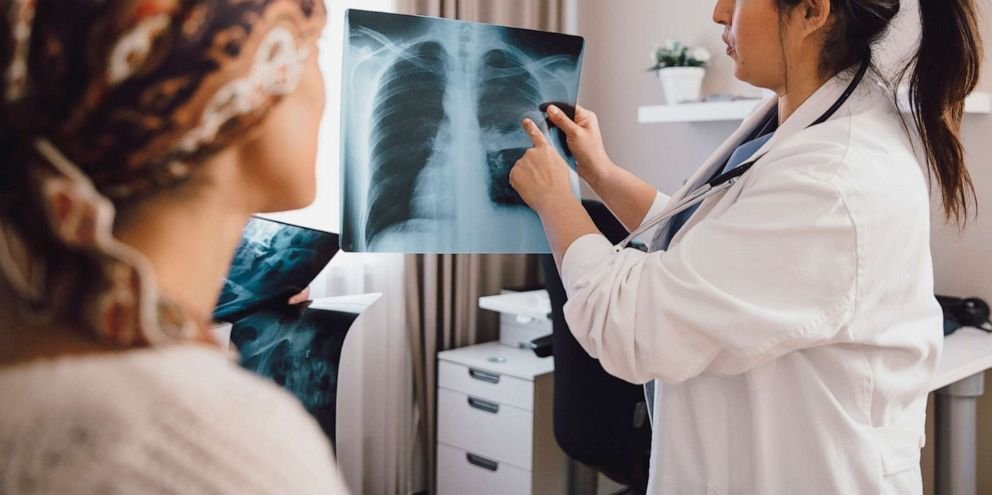Asian Americans form a diverse and vibrant community in the United States, but they face unique health challenges, including a higher susceptibility to certain types of cancers. In this comprehensive article, we delve into the 6 cancers that affect Asian Americans the most. By understanding these cancers and their risk factors, you can make informed decisions to protect your health.
6 Cancers That Affect Asian Americans the Most
1. Stomach Cancer: The Silent Threat
Stomach cancer, also known as gastric cancer, is a significant concern within the Asian American population. While its symptoms may be subtle, early detection is crucial for successful treatment. This cancer is often linked to Helicobacter pylori infection, a bacteria that inflames the stomach lining. A diet rich in smoked and salted foods, common in Asian cuisine, is also a contributing factor. Regular check-ups and maintaining a balanced diet can help lower the risk.
2. Liver Cancer: The Hepatitis Connection
Hepatitis B virus (HBV) infection is a leading cause of liver cancer in Asian Americans. Chronic HBV infection significantly increases the risk of developing this cancer. Asian Americans have a higher prevalence of HBV compared to the general population. Regular screenings for HBV, vaccination, and adopting a healthy lifestyle can reduce the risk of liver cancer.
3. Colorectal Cancer: Screening Matters
Colorectal cancer affects both men and women in the Asian American community. Lack of awareness and cultural factors sometimes lead to late-stage diagnosis. Encouraging regular screenings, adopting a high-fiber diet, and staying physically active can play a pivotal role in preventing colorectal cancer. Early detection through screenings can significantly improve treatment outcomes.
4. Lung Cancer: Unveiling the Smoking Myth
Lung cancer is often associated with smoking, but non-smoking Asian Americans also face an increased risk. Genetic factors and exposure to environmental pollutants contribute to this elevated risk. Regular health check-ups, avoiding secondhand smoke, and minimizing exposure to pollutants are crucial preventive measures. Lung cancer can be aggressive, emphasizing the importance of early diagnosis.
5. Thyroid Cancer: Gender Disparities
Thyroid cancer is more common among Asian American women, with thyroid nodules being prevalent. While many nodules are benign, some may require further evaluation to rule out cancer. Regular thyroid screenings and consulting an endocrinologist are important, especially for women. Maintaining a healthy iodine intake and avoiding excessive radiation exposure are also recommended.
6. Nasopharyngeal Cancer: Epstein-Barr Impact
Nasopharyngeal cancer is relatively rare but has a higher incidence in certain Asian American communities. It’s closely linked to the Epstein-Barr virus (EBV), which causes mononucleosis. Early symptoms often mimic common colds, making diagnosis challenging. Regular dental check-ups and screenings for EBV can aid in early detection. Avoiding tobacco and alcohol and consuming a diet rich in fruits and vegetables can help lower the risk.
Insights and Prevention
As a proactive measure against these cancers, Asian Americans can take several steps to safeguard their health:
- Regular Screenings: Timely screenings increase the likelihood of early cancer detection and better treatment outcomes.
- Healthy Diet: Adopting a diet rich in fruits, vegetables, whole grains, and lean proteins can lower cancer risk.
- Lifestyle Choices: Avoiding tobacco, limiting alcohol consumption, and staying physically active contribute to overall well-being.
- Vaccination: Hepatitis B vaccination and other recommended immunizations can significantly reduce cancer risk.
- Genetic Counseling: Understanding your family history and genetic predispositions can guide personalized prevention strategies.
FAQs
Q: Can lifestyle changes really make a difference in preventing these cancers?
A: Absolutely! Adopting a healthy lifestyle, including diet modifications and avoiding risk factors, can significantly reduce the risk of developing these cancers.
Q: Is genetic testing recommended for cancer prevention?
A: Genetic testing can provide valuable insights, especially if you have a family history of cancer. Consulting a healthcare professional can help you make informed decisions.
Q: How often should I go for cancer screenings?
A: The frequency of screenings varies for each cancer type and individual risk factors. Consult your doctor to establish a personalized screening schedule.
Q: Are these cancers treatable if detected early?
A: Yes, early detection greatly improves the success of treatment. Regular screenings increase the likelihood of catching cancer in its early stages.
Q: Can children of Asian American parents also inherit a higher risk of these cancers?
A: Genetic factors can influence cancer risk, but a healthy lifestyle can play a vital role in minimizing that risk.
Q: Are there any support groups for Asian Americans dealing with cancer?
A: Yes, various organizations offer support and resources for Asian Americans facing cancer diagnoses. Reach out to these groups for assistance and camaraderie.
Conclusion
In conclusion, being informed about the 6 cancers that affect Asian Americans the most empowers individuals to take proactive steps towards their health. By understanding risk factors, embracing a healthy lifestyle, and undergoing regular screenings, you can substantially reduce the risk of these cancers and ensure a healthier future.
Remember, knowledge is the first line of defense against cancer. Stay informed, stay vigilant, and prioritize your well-being.








